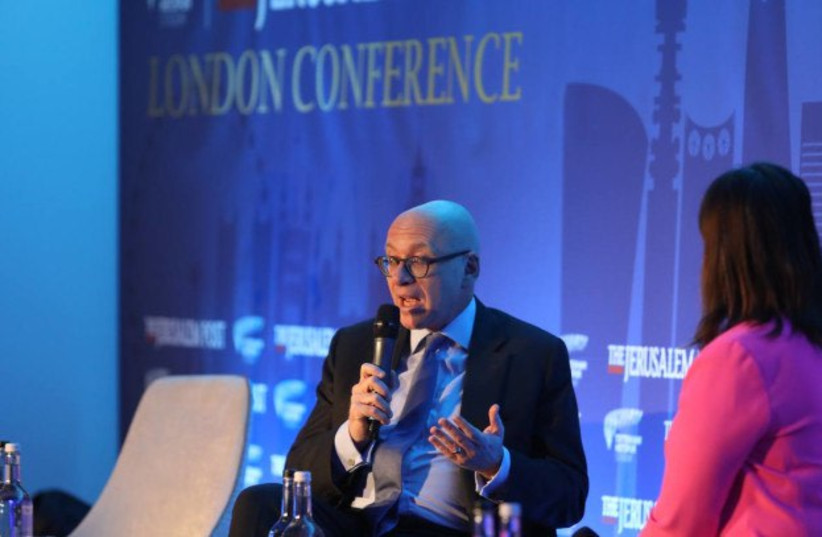Antisemitism is hate speech, and shutting down such racism is not an issue of free speech, UK Parliamentary Under-Secretary of State for Justice Lord David Wolfson said Thursday at The Jerusalem Post London Conference.
“It’s calumny to say that the fight against antisemitism in some way shuts down free speech; it simply doesn’t,” he said.
For more panels and interviews from The Jerusalem Post London Conference, click here >>
Wolfson brushed aside anti-free-speech criticism leveled at countries that have adopted the International Holocaust Remembrance Alliance definition of antisemitism, such as the United Kingdom. The UK was the first country to adopt the IHRA definition as government policy, he said.
“We seek to ensure that British society is free from antisemitism in all its guises; that is why we adopted the IHRA definition,” said Wolfson, who entered office in December 2020, almost two years after it became government policy.
“We believe that Britain ought to be a country of free speech,” he said, adding that he saw no distinction between support for the IHRA definition and free speech.

“Antisemitism is hate speech, and all democracies have drawn a line between free speech and hate speech,” Wolfson said. “There are things you cannot say because they are defamatory, and there are things you cannot say because they are racist.
“Antisemitism is Jew-hatred. I also do not like the word antisemitism. I call it anti-Jewish racism. I think it is very important to see the fight against antisemitism as part of the fight against racism.”
In Great Britain, “there are some people who appear to have a blind spot when it comes to anti-Jewish racism, people who pronounce themselves anti-racist in relation to every other form of racism,” he said.
There are those who have tried to explain that the IHRA definition prevents criticism of Israel, but that would be incorrect, he added.
Israel is a vibrant democracy with varying viewpoints, similar to Great Britain, Wolfson said.
One has to distinguish between critical debate and “singling out a country for criticism when you do not apply that approach to any other country, and that is the approach of the IHRA definition,” he said. “It does not shut down criticism of Israeli government policy. What it does do is to say that it is very likely that if you are applying a double standard, that your approach is infected by antisemitism.”
